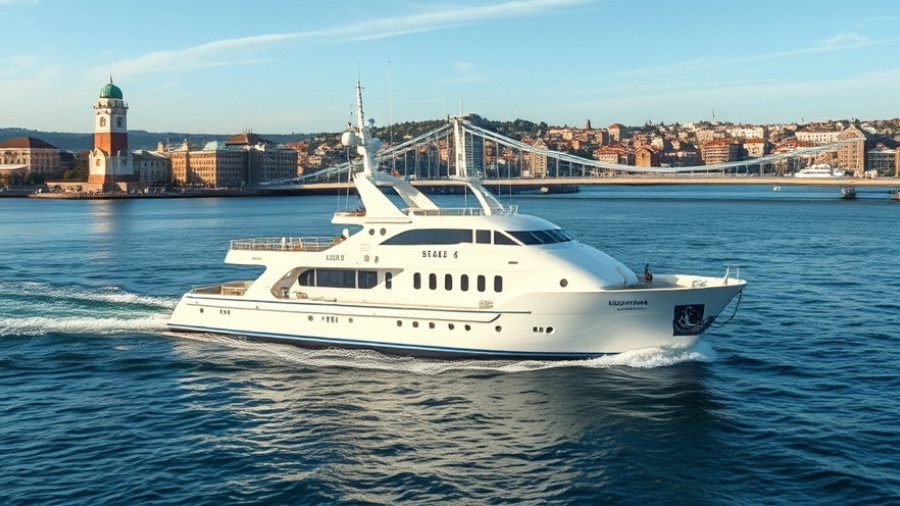
The MV Sea Ranger: A New Era for Maritime Research
In a groundbreaking move for marine research and maritime education, Witherbys has announced plans to introduce the MV Sea Ranger in 2026. This innovative oceanographic research vessel aims to bolster maritime safety and knowledge through real-world navigational studies and advanced training programs. The advent of such a vessel reflects an increasing recognition of the need for hands-on research capabilities that merge practical operations with digital advancements.
Enhancing Maritime Training Through Real-World Studies
The MV Sea Ranger is not just any research vessel; it is a promising development in maritime training that will serve with a dual purpose. Not only will it conduct comprehensive operational testing and case studies across essential waterways—like the Lombok and Sunda Straits—but it will also enhance Witherbys’ eBook Reader, Witherby Connect, which is in daily use by over 40,000 vessels worldwide.
By enabling authentic field testing of training programs, the vessel will ensure that maritime publications remain relevant and practical. Its capabilities are particularly noteworthy in the wake of emerging trends in marine navigation—such as the implementation of the new S-100 standards, which enhance navigational safety.
Catalyzing Collaboration: Linking Theory with Practice
With partnerships with key industry players like the International Chamber of Shipping (ICS) and BIMCO, the MV Sea Ranger represents a collaborative approach to maritime education and operational training. These alliances will allow Witherbys to integrate the latest findings in environmental compliance and maritime security into educational materials, ensuring that the information disseminated to mariners is both current and actionable.
Moreover, the vessel's extensive operational range of over 30,000 nautical miles allows for global expedition capabilities, warranting its effectiveness in diverse maritime locales, including those prone to environmental challenges.
Environmental Stewardship: Addressing Emerging Maritime Challenges
Maritime operations are under increasing scrutiny regarding their environmental impact. The MV Sea Ranger will facilitate research on energy efficiency and compliance with MARPOL regulations, crucial for promoting sustainable practices within the maritime industry. As discussions surrounding climate change grow, having vessels that specialize in environmental monitoring becomes not only beneficial but essential.
This shift towards greener practices aligns with a broader movement in the maritime sector, reflected in news about other initiatives such as the deployment of low-emission vessels for conservation tasks by the Sea Ranger Service.
A Vision for the Future: What Lies Ahead for Oceanographic Research
Looking ahead, Witherbys’ initiative with the MV Sea Ranger signals a potential transformation in oceanographic research and maritime training. The fusion of traditional research methodologies with innovative marine technologies sets a precedent for future developments in the field.
As the global lens continues to focus on sustainable maritime operations, the insights garnered from the MV Sea Ranger will undoubtedly inform best practices and guide future innovations, ensuring safety and excellence among mariners around the world.
Conclusion: Engage with the Future of Maritime Research
The introduction of the MV Sea Ranger could redefine how maritime knowledge is acquired and shared. Whether you're a maritime professional, an environmental advocate, or simply an interested observer, staying informed about advancements like these can keep you at the forefront of maritime innovation.
Join the conversation about the future of oceanographic research and marine training—your engagement could inspire the next wave of maritime advancements!
 Add Row
Add Row  Add
Add 




Write A Comment